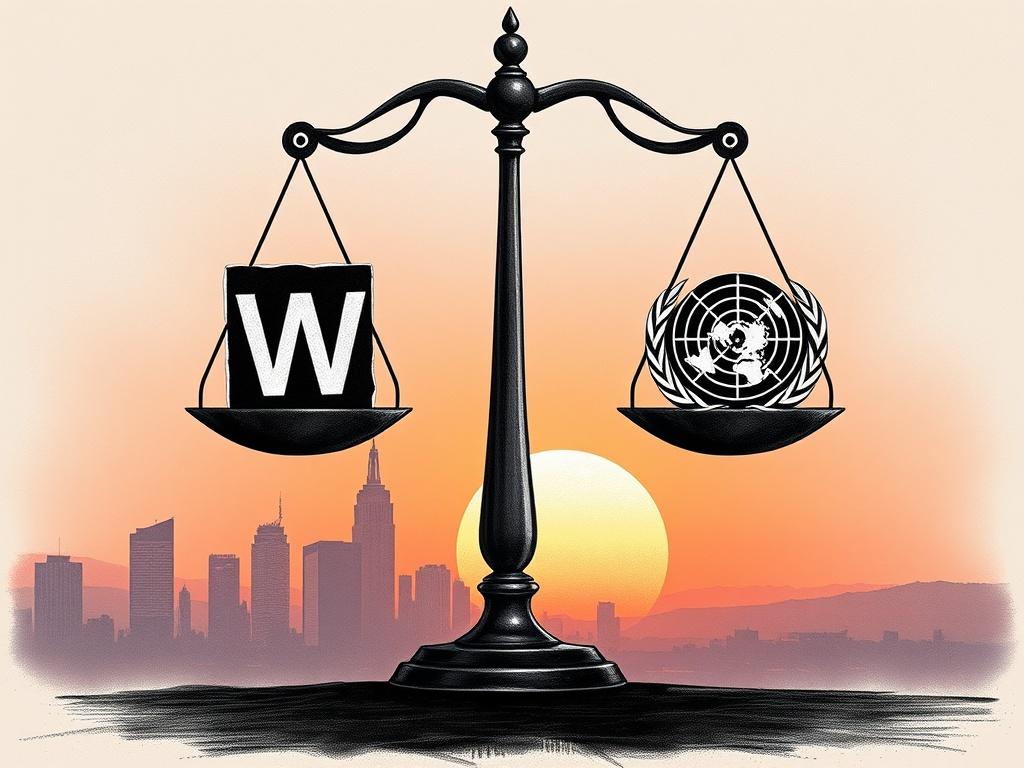
In November 2025, a groundbreaking report from Human Rights Watch, in collaboration with a UN watchdog, shed light on potential Israeli human rights violations that may conflict with U.S. laws. This compelling document not only highlights specific allegations but also ignites a crucial discussion about accountability and the application of international human rights standards. As global attention turns toward the region, this report serves as a pivotal point in understanding the intersection of international law, U.S. foreign policy, and the protection of human rights.
The findings of this report carry significant weight, impacting both policymakers and human rights advocates worldwide. By evaluating the alleged violations through the lens of U.S. laws, the report emphasizes the responsibility of the U.S. government and its allies to uphold human rights standards in their international dealings. As we delve into the implications of this report, we explore how it shapes the landscape of global human rights advocacy and reinforces the call for transparency and justice in the pursuit of human dignity.
Understanding the significance of the Human Rights Watch and UN watchdog report
The Human Rights Watch and UN watchdog report released in November 2025 sheds light on serious concerns regarding potential violations of human rights by Israel, particularly in the context of U.S. law. This report marks a pivotal moment in the ongoing discourse surrounding human rights advocacy, drawing attention to the complexities of international relations and how they intersect with domestic policies. As both organizations aim to protect and promote human rights worldwide, their findings challenge stakeholders to critically evaluate the actions of one of America's closest allies. The timing of the report, amidst growing tensions and increased scrutiny on global human rights issues, underscores its importance.
Moreover, this report serves as a call to action for policymakers, activists, and the general public. By explicitly referencing U.S. laws, the report compels an examination of American foreign policy and its moral and legal obligations. Understanding the implications of these findings is crucial for fostering informed discussions and advocating for accountability. As human rights organizations rally to support affected populations, the report energizes a broader movement demanding justice and adherence to international human rights standards. In this landscape, the role of the Human Rights Watch and the UN watchdog becomes even more significant, as they work to ensure that human dignity and justice remain at the forefront of global priorities.
Key findings on possible Israeli human rights violations under US laws
The November 2025 report from Human Rights Watch and the UN watchdog uncovers serious allegations of Israeli human rights violations that potentially contravene US legislation. The report meticulously details instances where Israeli military operations and settlement practices have allegedly inflicted harm on Palestinian civilians, raising questions about compliance with US laws that prohibit foreign assistance to governments implicated in human rights abuses. The evidence presented includes testimonies from affected individuals, satellite imagery, and documentation of military actions that allegedly contravene established international humanitarian law. Such findings place a spotlight on the US's role and responsibility in addressing these violations, given its significant financial and military support for Israel.
Moreover, the report emphasizes the need for accountability and urges both the US government and international community to take action. It recommends comprehensive reviews of US military aid and arms sales to Israel, promoting conditions that respect human rights and adhere to international law. By highlighting these possible violations, the report not only aims to inform policymakers but also seeks to engage the public in a dialogue around ethical foreign policy. The implications of these findings could ripple across various sectors, influencing public opinion, and shaping international relations and support for human rights initiatives worldwide.
Implications of the November 2025 report for global human rights advocacy
The November 2025 report from Human Rights Watch and the UN watchdog serves as a crucial catalyst for international discourse on human rights violations. By clearly outlining potential breaches of U.S. laws concerning Israeli actions, the report pressures both policymakers and the public to reevaluate their stances. Advocacy groups now have a strong foundation for pushing governments and international bodies to hold accountable those who infringe upon human rights. The documentation of these violations reinforces existing arguments for a more balanced dialogue on peace and justice in the region.
Moreover, the findings may provoke an increase in grassroots movements striving for accountability and justice on a global scale. Activists and organizations can leverage the report’s findings to foster solidarity, mobilizing support across nations for initiatives aimed at protecting human rights. As global citizens become more aware of these potential violations, the conversation surrounding U.S. involvement in foreign conflicts and its moral responsibilities will likely intensify. Thus, the implications of the November 2025 report extend beyond immediate political consequences, energizing the global human rights advocacy landscape for years to come.